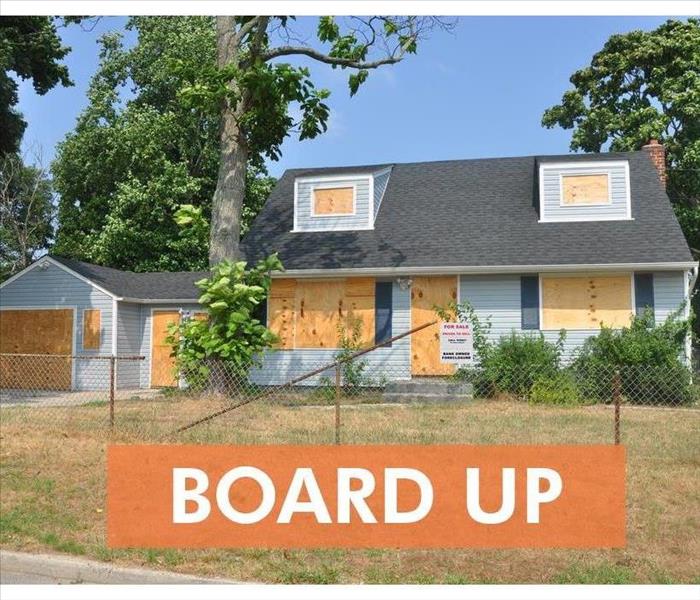Boarding Up After a Fire Is Essential
2/26/2020 (Permalink)
Boarding Up After a Fire Is Essential
After a fire, your home in O'Fallon, MO, may look and feel like a loss, but it is still a very valuable asset. In fact, the temptation may be to walk away for a bit, trying to remove the emotional pain and physical sight of the destruction. However, it's more important now than ever to stay, working with a fire restoration company to board up the premises, securing it and you from any further harm.
1. Don't Jeopardize Your Coverage
As soon as you wrap up with the fire company, contact your insurance agency and a restoration business. These crews will be essential in the recovery process. As a matter of fact, your insurer may require boarding measures to be taken to prevent other trouble. The restoration team, then, should begin emergency board up. At this time, they assess the building's structure, identifying weak areas, cracks or holes. Vulnerable areas should have boards and tarps placed over them. If not done, it's possible your carrier could deny coverage or make the proceedings more difficult.
2. Avoid Intruders
Exposed houses mean an opportunity for theft or trespassers; therefore, board up in order to lock the place down. Animals could sneak in, taking harbor in your rooms and creating more of a mess for you to handle. In addition, the open windows or doors are a calling card for robberies, asking people to simply try and see what you have left; thus, closing up protects your valuables.
3. Prevent More Harm
Fire damage is costly. Anything that happens afterward could simply increase the bill, so don't allow the environmental factors to ruin your place more. The fire may have ruined shingles, window frames or sideboards, allowing rain and wind to infiltrate. Closing off these areas could help guard from roof collapse, water accumulation, and mold development.
Don't neglect the board up phase. Reinforce your roof, walls, and windows so that you can maintain coverage and avoid major headaches.





 24/7 Emergency Service
24/7 Emergency Service
